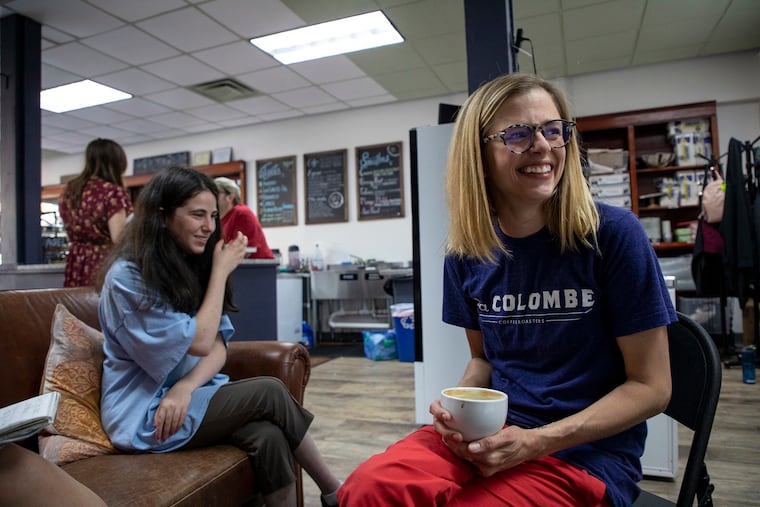Five ways employers can make their jobs more friendly to autistic employees
Be strategic and flexible. Communicate openly. Avoid stereotypes.

Accommodations and modifications that improve access for people who are disabled also tend to make life a little better for everyone. A classic example is curb cuts on sidewalks. While these were designed to make pedestrian life accessible to wheelchair users, even as an able-bodied woman, I greatly appreciated them as I pushed my babies around Philadelphia in strollers.
How do we apply principles of universal design to the workplace? Recent research with skilled autistic employees — and their employers — has some answers. Here are tips that employers can follow to become more friendly to autistic and neurodiverse employees. Building an inclusive workplace has the potential to make workplaces better for all.
Be strategic and creative when it comes to hiring
Recent data from the U.S. Bureau of Labor Statistics report 11.3 million job openings in the U.S., and only six million unemployed people to fill those openings. At the same time, the 5.4 million American adults on the autism spectrum largely remain unemployed or underemployed. Developing inclusive hiring practices will allow employers to tap this large, talented applicant pool.
Hiring practices that emphasize job-related strengths, such as performance-based interviews, allow candidates to demonstrate specific skills needed for a job. Candidates who excel at these skills are more likely to succeed compared with traditional “getting to know you” interviews that emphasize social skills. Recruitment platforms such as Applied help reduce bias and improve matches between employee characteristics and employer needs.
Maximize the fit between job-related tasks and employee skills and passions
Many autistic adults have what is called a “spiky profile” of strengths and weaknesses. Some seemingly simple tasks (such as keeping up with email) may be challenging, while the same person can bring a depth of knowledge, drive, and ingenuity to tasks they are passionate about. Job crafting, the process of matching a worker with a specific role and responsibility based on their strengths, is associated with improved job performance and lower employee turnover. Employees who have crafted their own job descriptions often feel more connected to their work. For employers looking to get started, job crafting can be effective when done at the team level.
Be flexible
With the rise in remote work, workers are calling for more flexibility in how and where work is accomplished. Flexibility and control over hours and working conditions may be especially important for autistic employees. For example, working from home provides a break from draining social demands (such as workplace bullies and small talk) and sensory overstimulation (including background noise, harsh lighting, and uncomfortable clothes). Employees who work from home are often more focused and productive.
Communicate openly and directly
Both autistic employees and their supervisors describe clear, open, and direct feedback and expectation setting as essential to positive employment experiences. Spontaneous, face-to-face dialogue can be challenging and inefficient for autistic people. Putting precise expectations and feedback in writing provides a document that employees can use to double-check their understanding of workplace expectations whenever needed.
Flexibility also applies to communication. Allowing employees to communicate in their preferred format (face-to-face vs. email, Zoom video vs. Zoom chat) maximizes the chances that all ideas will be heard, regardless of communication style.
Normalize and educate
Normalizing the fact that some employees are neurodivergent can go a long way toward creating an inclusive environment. This involves education about what autism is and can look like in the workplace. Ideally, this training should be conducted in collaboration with autistic people. Critically, it is essential to recognize the heterogeneity inherent to autism, and not rely on stereotypes. Autistic people have workplace strengths that go well beyond the stereotypical software engineer.
“Autistic people have workplace strengths that go well beyond the stereotypical software engineer.”
How to get started
At least 40 major employers — including Microsoft, JPMorgan Chase, and Ford Motor Co. — run dedicated programs to recruit, hire, and support autistic employees. These programs have been around long enough to show evidence of their success.
For example, SAP’s Autism at Work program, which includes performance-based interviewing, manager training, mentoring, and peer support, boasts a 90% retention rate of hires on the autism spectrum since it launched in 2013. Here in the Philadelphia area, one SAP employee recruited through this program filed two patents within eight months of being hired — a clear demonstration of success, both by the employee and by the supportive environment.
Companies should only hire qualified employees, regardless of disability status, and they are legally protected in doing so. But workplaces that overvalue characteristics or traits such as eye contact that are not part of the job description limit their pool of qualified applicants unnecessarily.
Employers who are looking to create a neurodiversity-friendly workplace could consider contracting a neurodiversity workforce intermediary to help them get started. Give it a try. It might just make your office an even better place to work.
Ashley de Marchena is an autism researcher and clinician at the University of the Sciences in Philadelphia.
The Philadelphia Inquirer is one of more than 20 news organizations producing Broke in Philly, a collaborative reporting project on solutions to poverty and the city’s push toward economic justice. See all of our reporting at brokeinphilly.org.